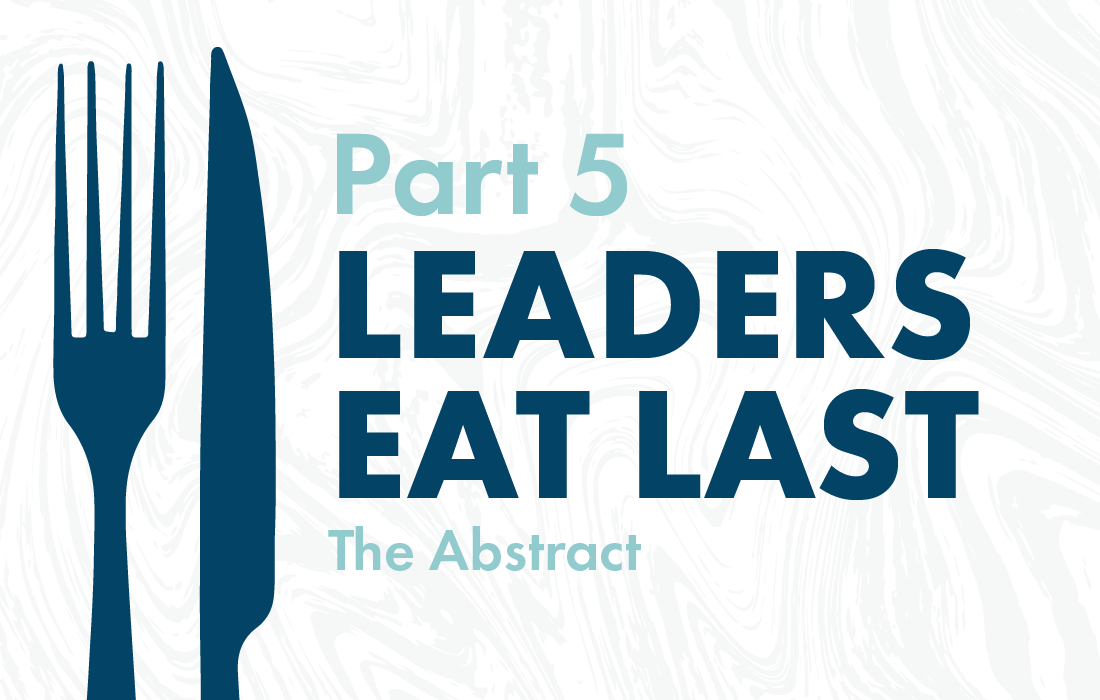
Part 5 of Leaders Eat Last discusses why abstraction is destructive. Making people abstract by having more “virtual relationships” or viewing employees as statistics causes us to have less regard for them and significantly reduces trust. Read along to see how Optus employees reacted to Part 5.
TAKEAWAYS
Part 5 mainly discusses the abstraction of people and how it’s harmful to the workplace and building trust. It also talks about having trust in yourself and questioning authority when you feel something is wrong. Don’t allow yourself to blindly lead and understand how your actions can affect others, even if you can’t see the effect.
FAVORITE QUOTES
- “No matter how rich or poor someone is, or where or when they were born, we all have 24 hours in a day and 365 days in a year. If someone is willing to give us something of which they have a fixed and finite amount, a completely nonredeemable commodity, we perceive greater value.”
- “The more abstract people become, the more capable we are of doing them harm.”
- “When we opt to stay above the clouds, relying only on information fed to us instead of going down to see for ourselves, not only is it harder to make the right moral decisions, it makes it even harder to take responsibility when we fail to do so.”
- “The death of one man is a tragedy; the death of a million is a statistic.”
- “What produces loyalty, that irrational willingness to commit to the organization even when offered more money elsewhere, is the feeling that the leaders of the company would be willing, when it matters, to sacrifice their time and energy to help us.”
- “There is no such thing as virtual trust.”
DAY-TO-DAY
Our employees had a lot of great ideas for how they could implement ideas from Part 5 into their day-to-day lives.
- The next time I assume something about someone, I will think about Abstraction. Part 5 made me more aware that the more abstract a person is, the less my empathy for them. I will try to step into other’s shoes and understand their point of view.
- The 5 rules of managing abstraction can apply to both my personal and professional life. In particular, I like Rule 3: “Meet the People You Help.” It seems so simple, but it was the most interesting rule to me. We are motivated to do better when we see the “actual, tangible impact of our work.” That is something for me to keep in mind when I lose my motivation or if I am trying to motivate others.
- Instead of emailing everyone day to day; start picking up my phone to call my customer’s (sometimes just hearing a person’s voice is more interactive than emailing them) and with my coworkers I can definitely get up to be more interactive with each one so that they can feel they know me a little better with a little more trust in me.
- Keep your eyes open and try to understand how your actions will affect others. Lead The Way Being a leader means more than being in a management position. Leadership can take many forms, whether at work or at home.
LEAD THE WAY
Some great ideas for how to improve your leadership skills from Part 5 include:
- Offer your time. The book says time isn’t infinite; it’s our dwindling resource. We inherently know this fact and instinctively feel gracious when anyone is willing to share it with us. As a leader, it’s imperative that we stay as far away from treating our team using a binary system. They’re not numbers, not 1’s and 0’s. They have families, friends, needs and wants, and it’s our job to offer ourselves to help them find happiness, whatever that happiness may be.
- Make individuals and their work more important than the overall goals. Give of my time not for the sake of better business, but in order to build trust and create a feeling of safety.
- Not just looking at the numbers of what can or cannot be done in a business but go to the source (the person that works on it daily) to see how it really works.
- Don’t get bogged down in numbers. Quality over quantity.
- Stay engaged with the people you work with and relationships will be a lot better.
SUM IT UP
- People aren’t numbers
- Foster team relationships
- Human interaction matters
- Abstraction is destructive
We hope you join us next week for Part 6: Destructive Abundance.